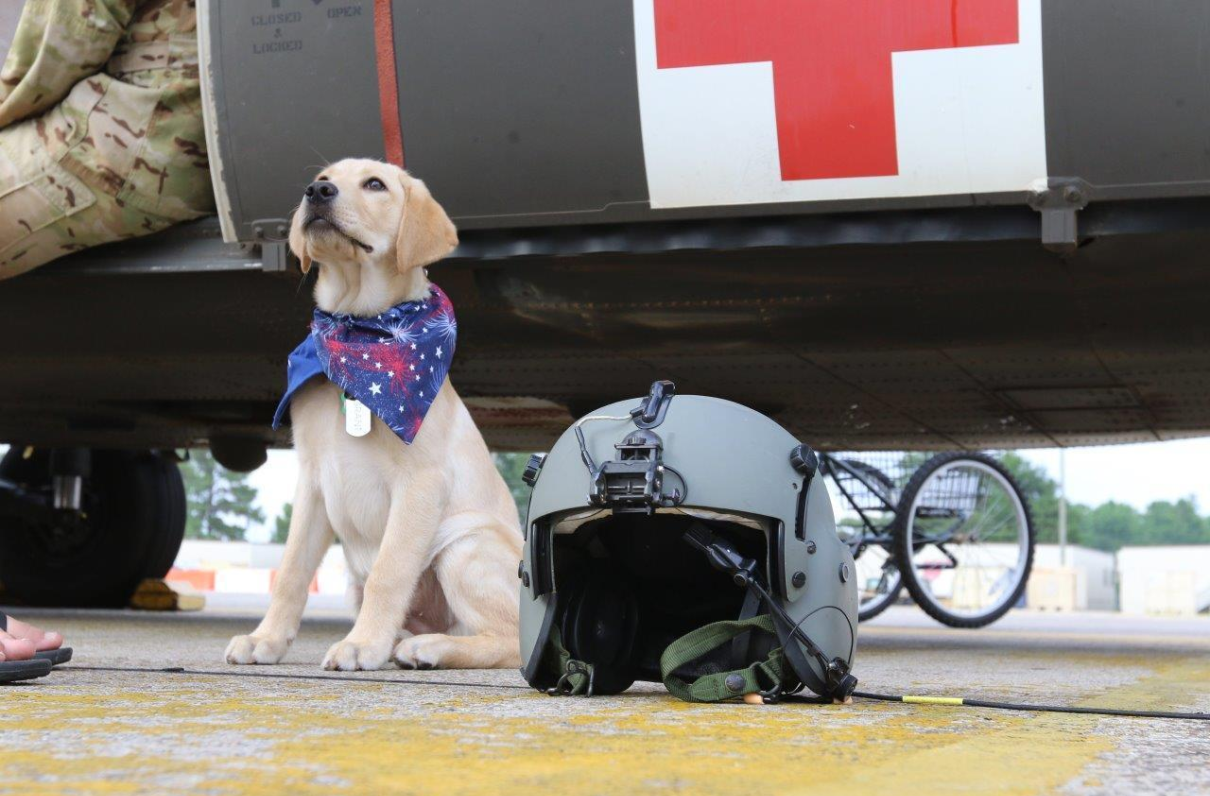Editor’s note: This article by Jonathan Lehrfeld originally appeared on Military.com, a leading source of news for the military and veteran community.
The Department of Veterans Affairs released its plan Tuesday to launch a canine training pilot program for eligible veterans with post-traumatic stress disorder.
Five VA medical centers have been chosen across the country to offer the pilot program over the next five years, including the Anchorage VA Medical Center in Alaska, the Charles George Department of Veterans Affairs Medical Center in Asheville, N.C., the Palo Alto VA Medical Center in California, the Audie L. Murphy Memorial Veterans' Hospital in San Antonio; and the West Palm Beach VA Medical Center in Florida.
"There are many effective treatments for PTSD and we're looking at service dog training as an adjunct to those options to ensure Veterans have access to resources that may improve their well-being and help them thrive," VA Secretary Denis McDonough said in a press release announcing the chosen pilot locations.
Advocates have long put pressure on lawmakers to finance service dog training for veterans as an option to deal with mental-health challenges. The program they hope will "raise awareness for this treatment option as a proven method for mitigating debilitating symptoms of PTSD and suicidal ideations," Rory Diamond, CEO of the nonprofit K9s For Warriors, said in a press release last year that coincided with the passage of a law creating the pilot program.
[RELATED: Get an In-Depth Look at MOAA’s Veteran Health Care Priorities]
The pilot program was required under the Puppies Assisting Wounded Servicemembers for Veterans Therapy Act, or the PAWS Act, signed into law on Aug. 25, 2021.
Advocates and officials say that service dogs can help bolster veterans' sense of self-worth as well as help them regulate their emotions as they establish trust with their service animal.
Veterans in the program will help train potential future service dogs and engage in a social cohort. Following the eight-week program, qualified veterans will have the option to adopt the dog they assisted in training.
The VA has not named the partner organizations it will work with to run the training.
A report from the Congressional Budget Office estimates the total expense for the VA to include this treatment option through 2026 -- from the training to the veterinary health care -- will be roughly $30 million at roughly $27,000 per dog. Participating in the program, however, will come at no cost to veterans.
To be eligible to participate, veterans must meet three primary requirements. First, they must be enrolled in the VA health-care system; second, they must be diagnosed with PTSD; and third, they must be recommended by a VA mental health-care provider or clinician. Receiving that final endorsement will come only after veterans have had a visit to their primary care or mental health-care provider within the last three months.
The VA has not yet announced whether it will expand the program to additional VA medical centers beyond the five sites it chose to first start the pilot.
Support MOAA Charities
Your generosity will benefit the work of The MOAA Foundation and MOAA Scholarship Fund. Click for details.
